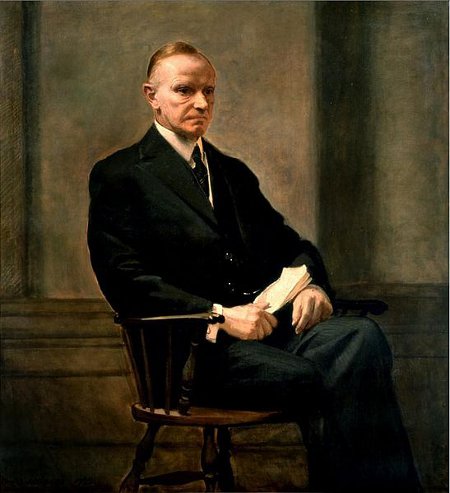avetrol
n. a bastard
uzzard
n. a third-generation bastard
avetrol
n. a bastard
uzzard
n. a third-generation bastard
“We request that every hen lay 130 to 140 eggs a year. The increase cannot be achieved by the bastard hens (non-Aryan) which now populate German farmyards. Slaughter these undesirables and replace them.” — Nazi Party news agency, April 3, 1937
“Quite a number of people … describe the German classical author, Shakespeare, as belonging to English literature, because — quite accidentally born at Stratford-on-Avon — he was forced by the authorities of that country to write in English.” — New York National Socialist organ Deutscher Weckruf und Beobachter, quoted in The American Mercury, July 1940
“The rabbit, it is certain, is no German animal, if only for its painful timidity. It is an immigrant who enjoys a guest’s privilege. As for the lion, one sees in him indisputably German fundamental characteristics. Thus one could call him a German abroad.” — Gen. Erich Ludendorff in Am Quell Deutscher Kraft
“Proper breathing is a means of acquiring heroic national mentality. The art of breathing was formerly characteristic of true Aryanism and known to all Aryan leaders.” — Weltpolitische Rundschau, Berlin

By Sam Loyd. In how few moves can White force Black to mate him?
The answer is to castle queenside:

Now every Black move is mate.
More proof that women are better than men:
Kneel and place your elbows, arms, and hands together as if praying. Bend over and place your arms against the floor, with your elbows touching your knees. Have someone stand a matchbox on end on the floor at your fingertips. Now clasp your hands behind your back and try to knock over the matchbox with your nose.
Women manage this pretty gracefully, but men tend to fall over. A man’s center of mass is closer to his head.
The taking of the United States census, now nearly completed, has brought to light some curious specimens of given names. A man in Illinois has five children, who have been christened Imprimis, Finis, Appendix, Addendum, and Erratum. In Smythe County, Virginia, a Mr. Elmadoras Sprinkle has called his two sons Myrtle Ellmore and Onyx Curwen, and his six daughters Memphis Tappan, Empress Vandalia, Tatnia Zain, Okeno Molette, Og Wilt, and Wintosse Emmah. The great number of persons surnamed Sprinkle in that county is given as the excuse for these extraordinary names.
— Notes and Queries, Dec. 10, 1870
Merrimack College mathematician Michael J. Bradley was coaching his son’s Little League team in 1996 when he noticed something odd in the rulebook:
Home base shall be marked by a five-sided slab of whitened rubber. It shall be a 12-inch square with two of the corners filled in so that one edge is 17 inches long, two are 8 1/2 inches and two are 12 inches.

That’s impossible. “The figure implies the existence of a right isosceles triangle with sides 12, 12 and 17. But (12, 12, 17) is not (quite) a Pythagorean triple: 122 + 122 = 288; 172 = 289.”
“Thus, these specifications seem to give new meaning to a ‘Field of Dreams.'”
“Plain women know more about men than beautiful ones do.” — Katharine Hepburn
A pleasant anecdote is told of Partridge, the celebrated almanac maker. In traveling on horseback into the country he stopped for his dinner at an inn, and afterward called for his horse that he might reach the next town, where he intended to sleep. ‘If you would take my advice, sir,’ said the ostler, as he was about to mount his horse, ‘you will stay where you are for the night, as you will surely be overtaken by a pelting rain.’ ‘Nonsense, nonsense,’ said the almanac maker, ‘there is sixpence for you, my honest fellow, and good afternoon to you.’ He proceeded on his journey, and sure enough he was well drenched in a heavy shower. Partridge was struck with the man’s prediction, and being always intent on the interest of his almanac, he rode back on the instant, and was received by the ostler with a broad grin. ‘Well, sir, you see I was right after all.’ ‘Yes, my lad, you have been so, and here is a crown for you, but I give it you on condition that you tell me how you knew of this rain.’ ‘To be sure, sir,’ replied the man; ‘why the truth is we have an almanac in our house called Partridge’s Almanac, and the fellow is such a notorious liar, that whenever he promises us a fine day we always know that it will be the direct contrary.’
— The Golden Rule, and Odd-Fellows’ Family Companion, Oct. 16, 1847

Ambassador Richard Washburn Child once dined with Calvin Coolidge at the White House.
After dinner, the president said he had something to show him. He led Child to one of the smaller rooms in the mansion, opened the door, and turned on the light.
“On the opposite wall hung a portrait of himself,” Child later recalled. “I thought it so very bad I could think of nothing to say.”
For a long moment the two men stood on the threshold. Then Coolidge snapped off the light and closed the door.
“So do I,” he said.
Once upon a time, Master Hobson, who was a rich haberdasher in the Poultry, lying in St Alban’s, there came certain musicians to play at his chamber door, hoping that, as they filled his ears with their music, he would fill their purses with money; whereupon he told one of the servants of the inn (that waited upon him) to go and tell them that he did not then want to hear their music, for he mourned for the death of his mother. So the musicians, disappointed of their purpose, went away. The fellow that heard him speak of mourning, asked him how long it was since he buried his mother. ‘Truly,’ quoth Master Hobson, ‘it is now very nearly forty years ago.’
— William Carew Hazlitt, The New London Jest Book, 1871